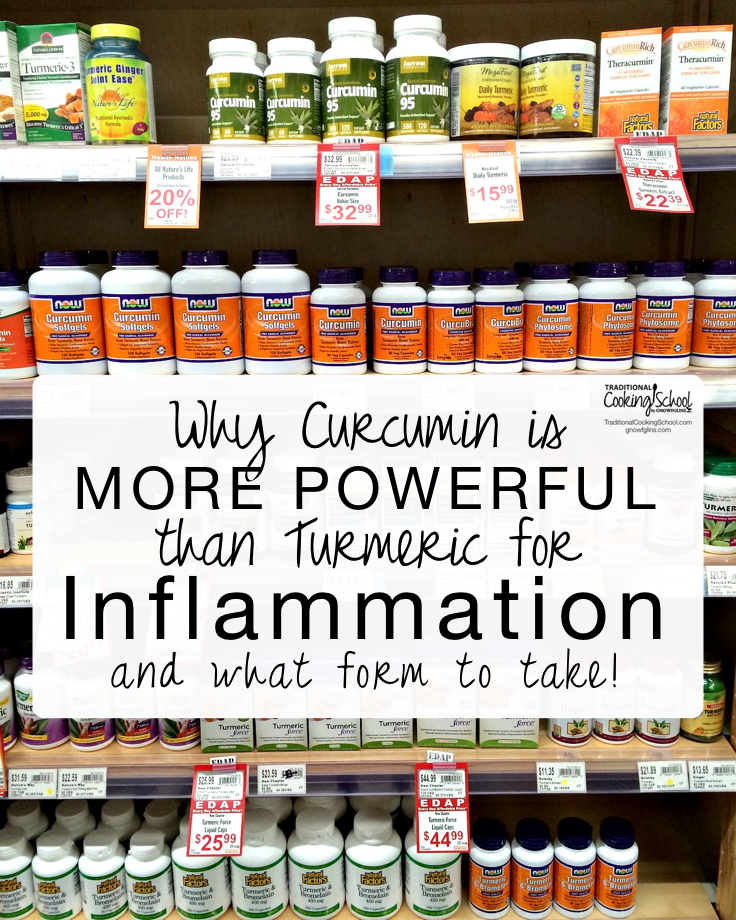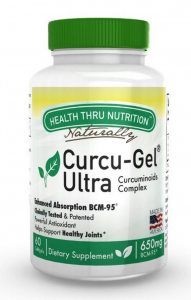
What is turmeric? What are its healing benefits? How much and in what form should I take this supplement?
I’m curious! I have Hashimoto’s and I want to put it into remission.
So, I’ve been researching. What’s up with the intriguing exaltation of turmeric over recent years?
What Is Turmeric?
Turmeric, if you’ve ever seen or used it fresh, looks very similar to ginger — except orange on the inside and proportionately 1/3 smaller. The flowering plant does indeed belong to the ginger family.
People in India, Pakistan, China, Japan, and even Africa have used turmeric for the last 4000 years. Turmeric aids digestion as well as helping to remedy liver and skin conditions. Somehow, it also reduces inflammation.
But can this superfood hold to its lofty reputation, even in clinical trials?
Over 3,000 medical papers have explored the subject of turmeric over the last 25 years! If the medical world has shown that much interest in a natural drug, there must be serious evidence in its favor, and serious failures on the part of the pharmaceutical world to create a comparable product. (Source.)
The allopathic community recognized the natural, active agent in turmeric as anti-inflammatory. What is the active component in this case? Curcumin — the agent within turmeric that suppresses and inhibits inflammation. (Source.)
Curcumin’s Heroic Stature
Inflammation comes hand-in-hand with most chronic illnesses. Reduce inflammation, therefore, and you play a healing role.
Not only does inflammation causally affect cancer, but also neurological, cardiovascular, pulmonary, and autoimmune diseases too. As a result, early evidence in clinical studies has singled curcumin out as a panacea.
Drumroll, please. Let’s take a quick look at some of curcumin’s claims to fame:
In medical laboratory tests, curcumin has proven more effective than ibuprofen or naproxen. Sometimes, low doses have even proved more effective than high doses when treating various forms of inflammation.
Curcumin, more than turmeric itself, moderates blood sugar levels. Curcumin can even help prevent diabetes by preventing the cellular dysfunction associated with it.
Regarding asthma: “The highest doses of curcumin, but not the lower doses, significantly enhanced IgG levels… These results suggest that curcumin has potential therapeutic value for controlling allergic responses resulting from exposure to allergens.” (Source.)
Curcumin prevents and treats various bowel diseases, including IBS, colitis, and colon cancer.
Curcumin stimulates the production of bile and facilitates the emptying of the gallbladder.
“Because current treatments for arthritis are inefficient, produce substantial side effects, and tend to be expensive, natural products, which are devoid of such disadvantages, offer a novel treatment opportunities.” Curcumin offers great potential in its treatment of arthritis. (Source.)
Curcumin has also shown itself helpful with osteoarthritis, rheumatoid arthritis, and in the topical treatment of psoriasis.
In 1 functional medical study of over 2000 Hashimoto’s patients, 56% of the participants felt noticeable improvements in their symptoms from taking curcumin. (Source.)
Any Drawbacks To Curcumin?
The body rapidly eliminates curcumin. The serum concentration after oral intake of the remedy usually peaks after 1 to 2 hours, declining within 12 hours. This can mean poor absorption and low bioavailability.
This tendency has led to the exploration of adjuvants, which block the metabolism of curcumin. Going a more natural route, studies have also shown that by combining it with piperine — an antioxidant that can be found in black pepper — the bioavailability increases significantly. (Source.)
Why Not Consume Regular Amounts Of Turmeric Instead?
In response, well-respected functional medical practitioner Chris Kresser says,
“But eating turmeric is not a good way of boosting your serum curcuminoid level because the curcuminoids in turmeric are not very well absorbed. And even oral curcumin supplements are often not very well absorbed, and the amount of time they spend in the blood when they are absorbed is pretty short.” (Source.)
Bioavailable Forms Of Curcumin
A form of curcumin called Meriva binds curcumin extract with phosphatidylcholine, a naturally occurring chemical found in many foods and a component in cells. The body better absorbs this combination than curcumin alone. Thorne, as well as other manufacturers, produce this product.
Some recent findings suggest that combining curcumin with resveratrol — a compound derived from Japanese knotweed — makes the anti-inflammatory effect greater when balancing the immune system in Hashimoto’s sufferers (source).
Chris Kresser recommends the curcumin supplement BCM-95. To quote 1 retailer of the product, “It is made of micronized curcuminoid particles combined with the turmeric essential oil and phospholipid phosphatidylcholine. BCM-95 is about 10 times more absorbable than regular standardized 95% turmeric extract” (source).
Latest Findings Of Curcumin
In addition to increasingly effective and bioavailable curcumin supplements (such as BCM-95), scientists discovered that curcumin is perhaps not an antioxidant as was once believed. Instead, they now understand that curcumin is actually an irritant, or a pro-oxidant.
Curcumin’s mild toxicity actually engages the body’s natural defenses. This result is called hormetic. Turmeric’s healing ability throughout history may indeed have been due to the hormetic reaction.
Just as small doses of curcumin in clinical trials are often more potent than large doses, the concept of hormesis is one of low dose stimulation. So eating a bit of turmeric, in curry, for instance, could have good health benefits.
This does not mean that it reduces inflammation. Taking large amounts of turmeric or curcumin also has not shown itself to be beneficial. However, bioavailable curcumin can indeed deliver this desired effect (source).
Bioavailable curcumin therefore affects not only inflammation, but very likely helps regulate the body’s ideal immune response, touching on the underlying condition instead of simply reducing symptoms.
Conclusion
When used in conjunction with other compounds, curcumin relieves inflammation and regulates autoimmune responses. It is an affordable supplement and remedy for various modern ailments — and because of this, it will receive further study for treatment and prevention of chronic diseases.
Have you investigated or used curcumin supplements? For which chronic diseases? What were your results or findings?
...without giving up the foods you love or spending all day in the kitchen!

2 free books:
Eat God's Way
Ditch the Standard American Diet, get healthier & happier, and save money on groceries...
We only recommend products and services we wholeheartedly endorse. This post may contain special links through which we earn a small commission if you make a purchase (though your price is the same).



Someone commented that you can only take it for three months, because it can damage your liver?? Is this true? If so how do you take it?
Hi Lupin, thanks for your question. 500 mg. 3 times daily is often recommended for those with Hashimoto’s. However, I would consult a doctor regarding dosage and the potential liver damage you mention.
I’ve been taking the above supplement for mostly menstrual pain (like experienced with endometriosis but not found on exam), but it hasn’t had much of an effect on me. Kind of frustrated, just thinking I might should just stop taking it. :/
I’m sorry to hear this, Kelly. I don’t have any experience using curcumin for menstrual pain. I wish you all success and perseverance as you continue to search for relief. Blessings.
Kelly try cinnamon tea (boil cinnamon sticks and drink when you feel it coming on) it works wonders.
Try chelated magnesium for period cramps, 300-600mg. Cramp bark root and raspberry leaf tea are good as well but may cause drowsiness.
Leslie, I’m fascinated that you recommend chelated magnesium! I’ve only ever found magnesium in a liquid form (Floradix, Bluebonnet, Natural Calm) to be effective at reducing muscle aches and cramps. Chelated magnesium does nothing for me.
Native Americans have used red raspberry leaf for centuries for menstrual pain, and it worked wonders for me in tincture form (but not in an alcohol base). Also made childbirth quite easy.
I take it, in the mornings with food, and Black seed oil in the evenings. I found taking Turmeric twice a day upset my stomach, and gave me cramps. Now i have no upset tummy and my hands feel great in the mornings. I like taking both as the BSO is also anti inflammatory, but also antifungal, which has helped clear up toe nail funus and itchy ears. My thyroid issues are, well, in remission. I also take a thyroid support supplement.
I feel fabulous!
Hi Trisha, thanks for your comment. I haven’t used black seed oil before and appreciate you mentioning it. I’m so happy for your improvement and success!! Thanks for sharing!!
Hello Trisha,
What dosage of BSO do you take and what brand have you had success with ? I had burning mouth syndrome last year(never had heard of this before I got it) and out of desperation I tried turmeric capsules and within 2 days I felt relief and then it was gone after 2 wks. it was very painful. I do have itchy ears and toe fungus as well. Thank you for any input.
Thank you Megan for all the helpful information! I also have Hashimoto’s and would like to get off my low dose of medication. I was diagnosed with MS and am looking for alternative treatments. So the BCM-95 should help with the inflammation. Trisha, you mentioned that you take some thyroid support on top of the BSO. Would you mind sharing what you take? Healing blessings to all!
Look up low dose naltrexone for ms
Trisha, what kind of thyroid supplement do you take?
My ND suggested I try curcumin for fybromyalgia and every day I take it I notice more of a difference. Hoping it will help long term!
So glad to hear this. Thank you for sharing!! May it be!!
Hi –
I have been using regular (organic) Turmeric powder, about 1/4 to 1/2 tsp., from the spice isle, added to a smoothie make from homemade kefir, power greens, varying fruits and a supplement like chia or flax. The smoothie was already doing great things for my health (the kefir is really a godsend) before I started adding the Turmeric. Since the addition, I notice improved mobility and decreased joint pain. That’s saying something, since osteoarthritis runs in my family!
Resveratrol may not be well tolerated for those of us with Hashimoto’s. BCM-95 is a great immune system modulator for most all autoimmune disorders. Love this blog- great info!
What do you think about this product, is it safe?
Gaia Herbs
TURMERIC SUPREME: EXTRA STRENGTH
Thanks to let me know
I believe, from my own personal experience and reading, that the Gaia product would be somewhat helpful and effective. It does contain the black pepper extract that helps increase absorption. However, the best brands use the fat or lipids from turmeric to increase its bioavailability. BCM-95 is preferred and what to look for, in my opinion. Here’s a good product that I believe is more effective: http://amzn.to/1P6XPCy Thanks, Martine. 🙂
Martine,
I have been using the same Gaia product for over a year and I love it. I was just diagnosed with Hashimitos 4 months ago. ( bonus for me that I was already taking the turmeric with curcumin) I also use NAC and Olive leaf by Gaia. Vitamine D3 and B12(sublingual) every other day. I found that I have more energy during the day.
Thanks for sharing!
Megan, a well researched presentation, thank you. ‘Everyone’ is touting turmeric these days, Your information is very helpful.
I’m so glad! Thank you for your kind comment. 🙂
I checked out what you recommended on Amazon. That company got some iffy reviews by sending opened bottles without seals or come ft in. Do you have another source?…or have You had any problems with that company?….it’s called Life Extension.
Hi Debbi, yes, I like this brand: http://amzn.to/1P6XPCy
Check out the files on “golden paste” on the Tumeric users group on Facebook. It works wonders for humans and animals. I have been using it for my knees and my 11 year old dog…so many success stories!
Yes! I’m a part of this group, and I take golden paste myself, and my mom gives it to her dog for his arthritis as well. It really helps us both!
You recommend one brand in the story and a different brand in the comments. Which would be better for my husband who has carpal tunnel and a bulging disk? Thank you.
Hi Adrienne, I recommend the brand in my comments. We’ll try to update the main post accordingly. Thanks and cheers! 🙂
Hi Megan, can one just take cayenne pepper rather than black pepper? Black pepper upset my stomach..it seem to help me with any kind of pain. I use turmeric mostly in my cooking, can’t stand swallowing pills..cooking like: bone broth, mash potatoes, curry rice, bread,etc.
Hi Monica, no, unfortunately; it’s the black pepper that is needed. Have you tried this supplement (linked to above)? Does it bother your stomach too? The supplement is more effective than taking turmeric and black pepper together, in my opinion; so that may be a good option for you.